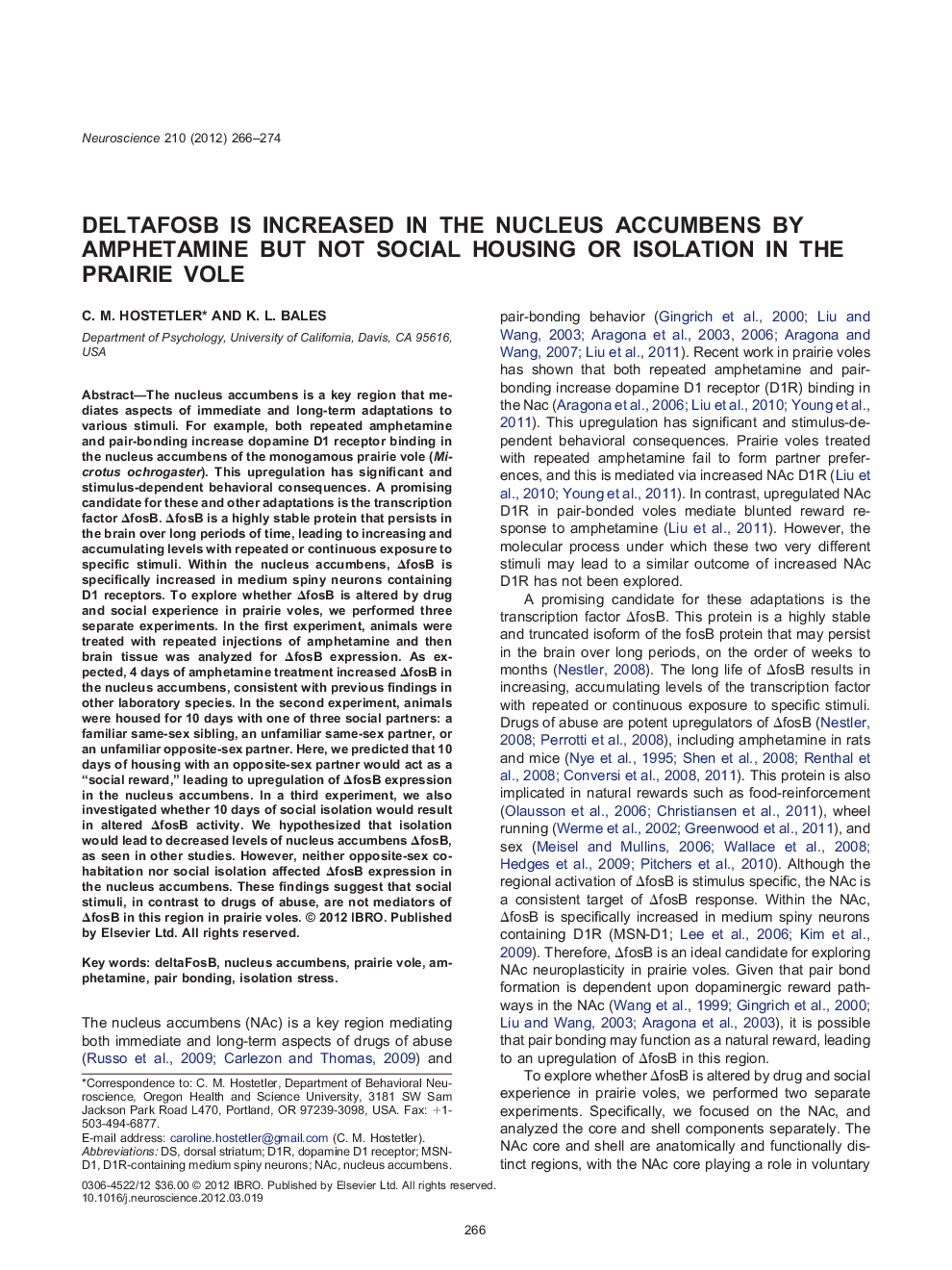| کد مقاله | کد نشریه | سال انتشار | مقاله انگلیسی | نسخه تمام متن |
|---|---|---|---|---|
| 4338371 | 1614866 | 2012 | 9 صفحه PDF | دانلود رایگان |

The nucleus accumbens is a key region that mediates aspects of immediate and long-term adaptations to various stimuli. For example, both repeated amphetamine and pair-bonding increase dopamine D1 receptor binding in the nucleus accumbens of the monogamous prairie vole (Microtus ochrogaster). This upregulation has significant and stimulus-dependent behavioral consequences. A promising candidate for these and other adaptations is the transcription factor ΔfosB. ΔfosB is a highly stable protein that persists in the brain over long periods of time, leading to increasing and accumulating levels with repeated or continuous exposure to specific stimuli. Within the nucleus accumbens, ΔfosB is specifically increased in medium spiny neurons containing D1 receptors. To explore whether ΔfosB is altered by drug and social experience in prairie voles, we performed three separate experiments. In the first experiment, animals were treated with repeated injections of amphetamine and then brain tissue was analyzed for ΔfosB expression. As expected, 4 days of amphetamine treatment increased ΔfosB in the nucleus accumbens, consistent with previous findings in other laboratory species. In the second experiment, animals were housed for 10 days with one of three social partners: a familiar same-sex sibling, an unfamiliar same-sex partner, or an unfamiliar opposite-sex partner. Here, we predicted that 10 days of housing with an opposite-sex partner would act as a “social reward,” leading to upregulation of ΔfosB expression in the nucleus accumbens. In a third experiment, we also investigated whether 10 days of social isolation would result in altered ΔfosB activity. We hypothesized that isolation would lead to decreased levels of nucleus accumbens ΔfosB, as seen in other studies. However, neither opposite-sex cohabitation nor social isolation affected ΔfosB expression in the nucleus accumbens. These findings suggest that social stimuli, in contrast to drugs of abuse, are not mediators of ΔfosB in this region in prairie voles.
▶Repeated amphetamine increases ΔfosB in the nucleus accumbens of prairie voles. ▶Long-term cohabitation with an opposite sex partner does not increase nucleus accumbens ΔfosB. ▶Chronic isolation does not increase nucleus accumbens ΔfosB in prairie voles.
Journal: Neuroscience - Volume 210, 17 May 2012, Pages 266–274